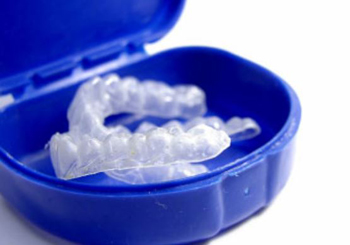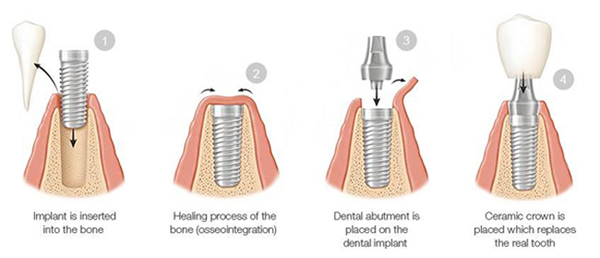When you look in the mirror and see how dramatically teeth whitening treatments have brightened your smile, the results can be exhilarating. For some people, the thrill of seeing their teeth get amazingly white becomes habit forming.

Teeth whitening should be carefully monitored
If you received teeth whitening from your dentist, you were probably advised to use it for about two weeks and to wait before starting another session to allow the color to stabilize. But what if you continue bleaching your teeth for weeks, even months? Or what if you are whitening your teeth over and over again without a dentist’s supervision? Although you may not notice how much whiter your teeth are getting, they can become sensitive and brittle.
What Can You Do to Protect Your Teeth?
- Take a break. Stop whitening your teeth and give them time to recover. After you stop whitening treatment, the shade of your teeth will continue to brighten over the next few days. Give your teeth and gums time to recover. Irritated nerves can become less sensitive if they are not in contact with the bleaching gel. And irritated gum tissue can heal.
- Switch your toothpaste. Daily use toothpaste for sensitive teeth. It penetrates the tiny holes in your teeth and blocks the nerves to decrease sensitivity.
- Tell your dentist. You might be embarrassed to tell your dentist about your teeth whitening habit. But your dentist can examine your teeth and let you know if there is any external or internal damage to your teeth. He or she can provide treatment to protect your teeth from further damage. Prescription fluoride treatment or toothpaste might be recommended to strengthen your teeth.
- You should avoid whitening your teeth without your dentist’s approval. It’s possible to resume teeth whitening too soon. Just because your teeth feel better doesn’t mean it’s safe to use bleaching gel on them. Your dentist will let you know when, how, and how frequently you should use the gel.
Accredited cosmetic dentist Michael Szarek, DMD of Lowell, MA sponsors this blog.

